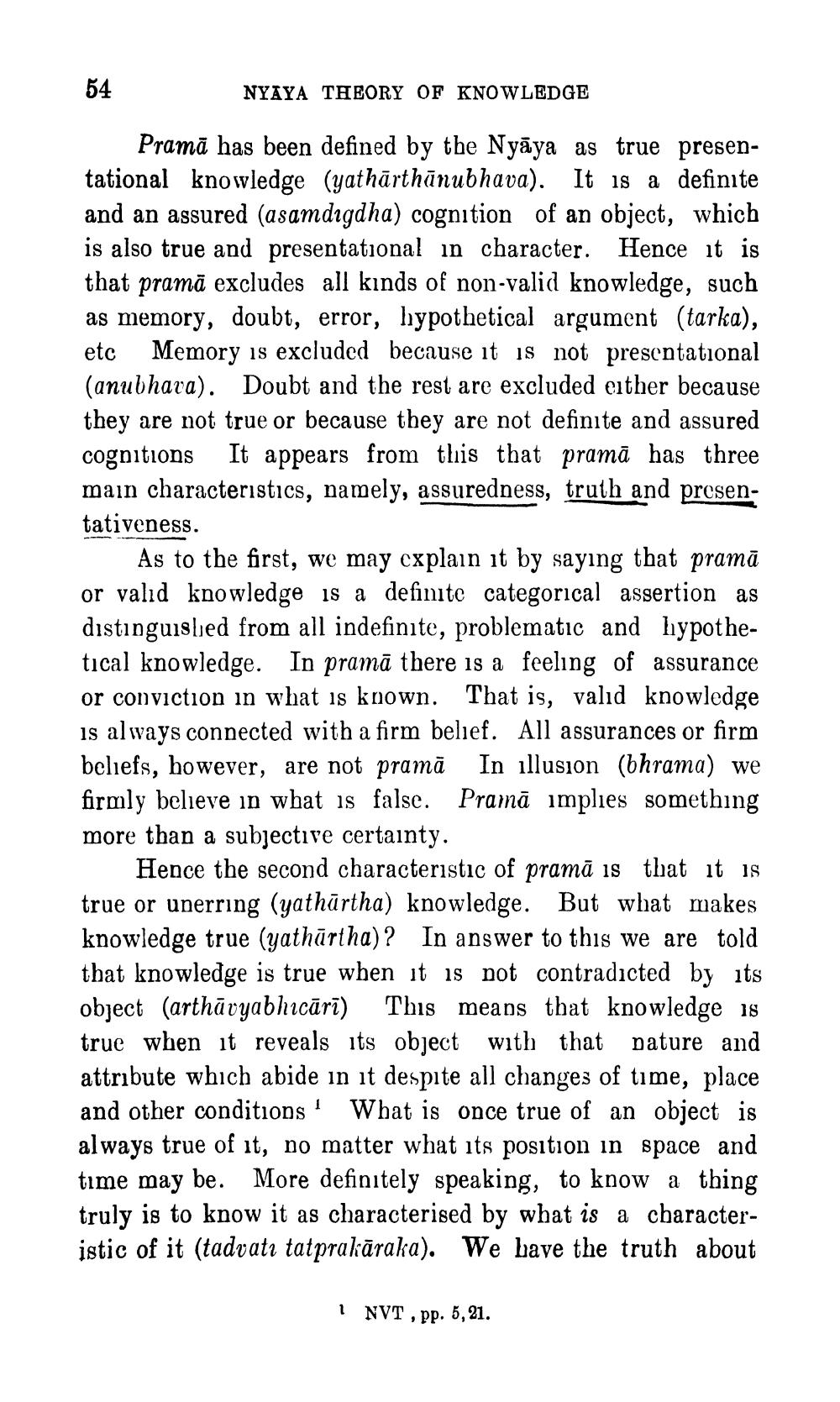________________
04
54
NYAYA THEORY OF KNOWLEDGE
Pramā has been defined by the Nyāya as true presentational knowledge (yathārthānubhava). It is a definite and an assured (asamdigdha) cognition of an object, which is also true and presentational in character. Hence it is that pramā excludes all kinds of non-valid knowledge, such as memory, doubt, error, hypothetical argument (tarka), etc Memory is excluded because it is not presentational (anubhava). Doubt and the rest are excluded either because they are not true or because they are not definite and assured cognitions It appears from this that pramā has three main characteristics, namely, assuredness, truth and presentativeness.
As to the first, we may explain it by saying that pramā or valid knowledge is a definite categorical assertion as distinguished from all indefinite, problematic and hypothetical knowledge. In pramā there is a feeling of assurance or conviction in what is known. That is, valid knowledge is always connected with a firm belief. All assurances or firm beliefs, however, are not pramā In illusion (bhrama) we firmly believe in what is false. Pramā implies something more than a subjective certainty.
Hence the second characteristic of pramā is that it is true or unerring (yathārtha) knowledge. But what makes knowledge true (yathūrtha)? In answer to this we are told that knowledge is true when it is not contradicted by its object (arthāvyabhıcārī) This means that knowledge 18 true when it reveals its object with that nature and attribute which abide in it despite all changes of time, place and other conditions What is once true of an object is always true of it, no matter what its position in space and time may be. More definitely speaking, to know a thing truly is to know it as characterised by what is a characteristic of it (tadvatı tatprakāraka). We bave the truth about
1 NVT , pp. 5,21.




